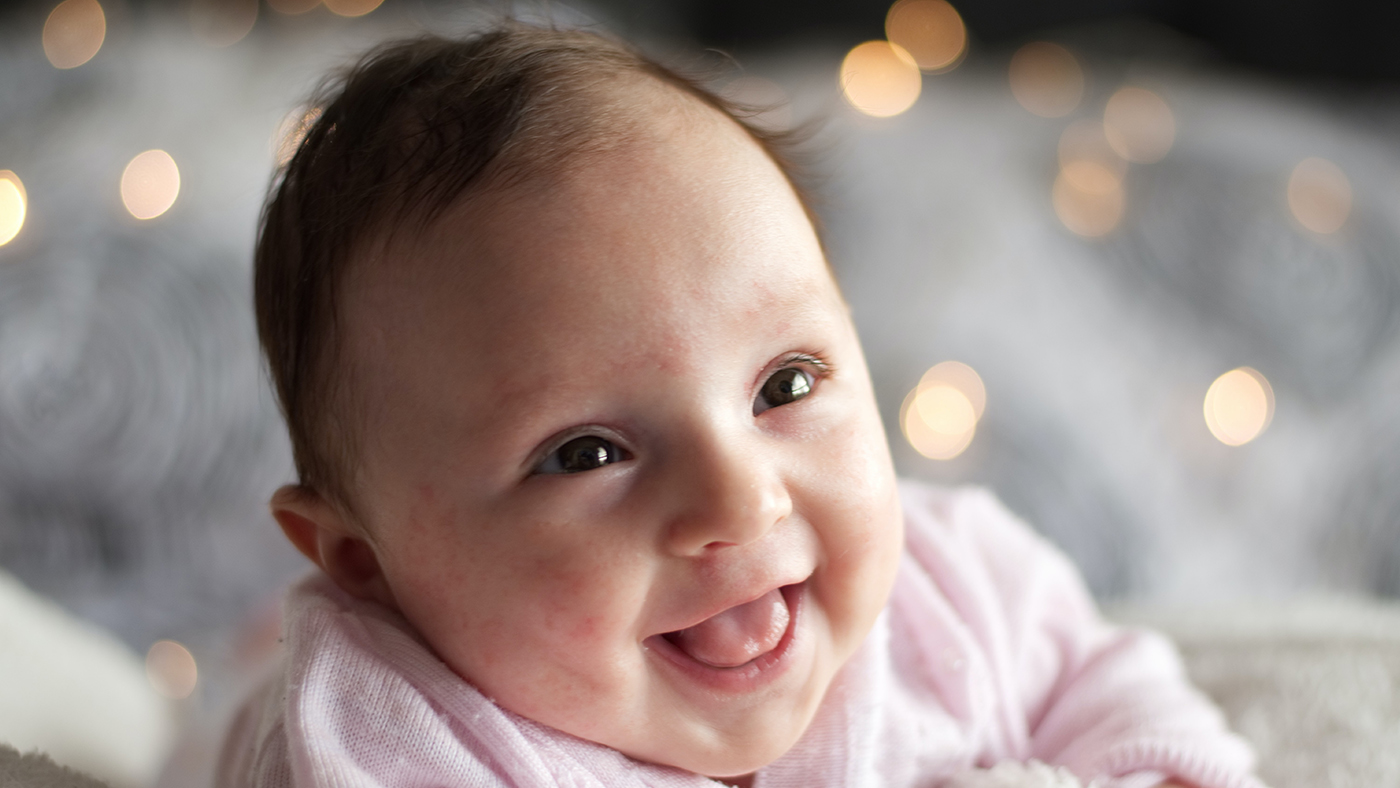Early smiles are genuine signs of happiness and contentment

Babies in the womb have been seen to be smiling on ultrasound images and these smiles are believed to be real indicators of contentment. Your newborn baby’s first smiles are also understood to be smiles of genuine satisfaction. Your baby may pull funny faces when burping up milk or filling nappies but they are equally capable of showing genuine emotion. Just as their first cries and first tears are real and indicators of distress, similarly, very young babies can display early positive emotions.
Early smiles are signs of genuine pleasure
Your baby may smile and stick their tongue out from a very young age, but this is not in response to someone else doing the same thing. This suggests your baby’s first smiles are not out of politeness.
The 'Duchene' smile: when your baby's face lights up
Babies first smiles are believed to be signs of pleasure, and research distinguishes between these ‘pleasure’ smiles and ‘social’ smiles. The genuine smile of pleasure is known to psychologists as the Duchenne smile after the person who first described it, Guillaume Duchenne. The Duchenne smile is recognisable as it lights up the whole face, with additional muscles around the eye socket causing crinkles at the side of the eyes. These smiles are spontaneous and involuntary. A social smile is harder because it is something we must choose to do.[1]
As your baby develops, you'll see their relaxation and joy in movement as well as smiles
Babies' smiles in the early months are thought to indicate pleasure and to occur when the baby experiences a relaxation in cognitive tension related to recognising a visual stimulus, such as your approach, or an interesting toy or object. As your baby develops an increasing capacity for cognitive engagement this is thought to lead to more dramatic drops in arousal and more specifically joyful emotion.
Your baby’s smile, or other facial expressions of emotions may coincide with vocal, gestural and whole body expressions of the emotion. These combinations indicate your baby’s emotional processes, and help to shed light on the dynamics of how they're feeling.
Your baby's smiles are signals as you interact together
Early smiles are an emotional signal to the self and as your baby grows will also become a signal to you and other caregivers as interactive partners. Over time they will evolve to be simultaneously experiential (based on experience and observation) and social.[2]
References:
[1] Addyman, C (2020) The laughing baby: The extraordinary science behind what makes babies happy. London: Unbound.
[2] Messinger, D.S. and A. Fogel, The interactive development of social smiling, in Advances in Child Development and Behavior, R. Kail, Editor. 2007, Elsevier: Oxford. p. 328-366.